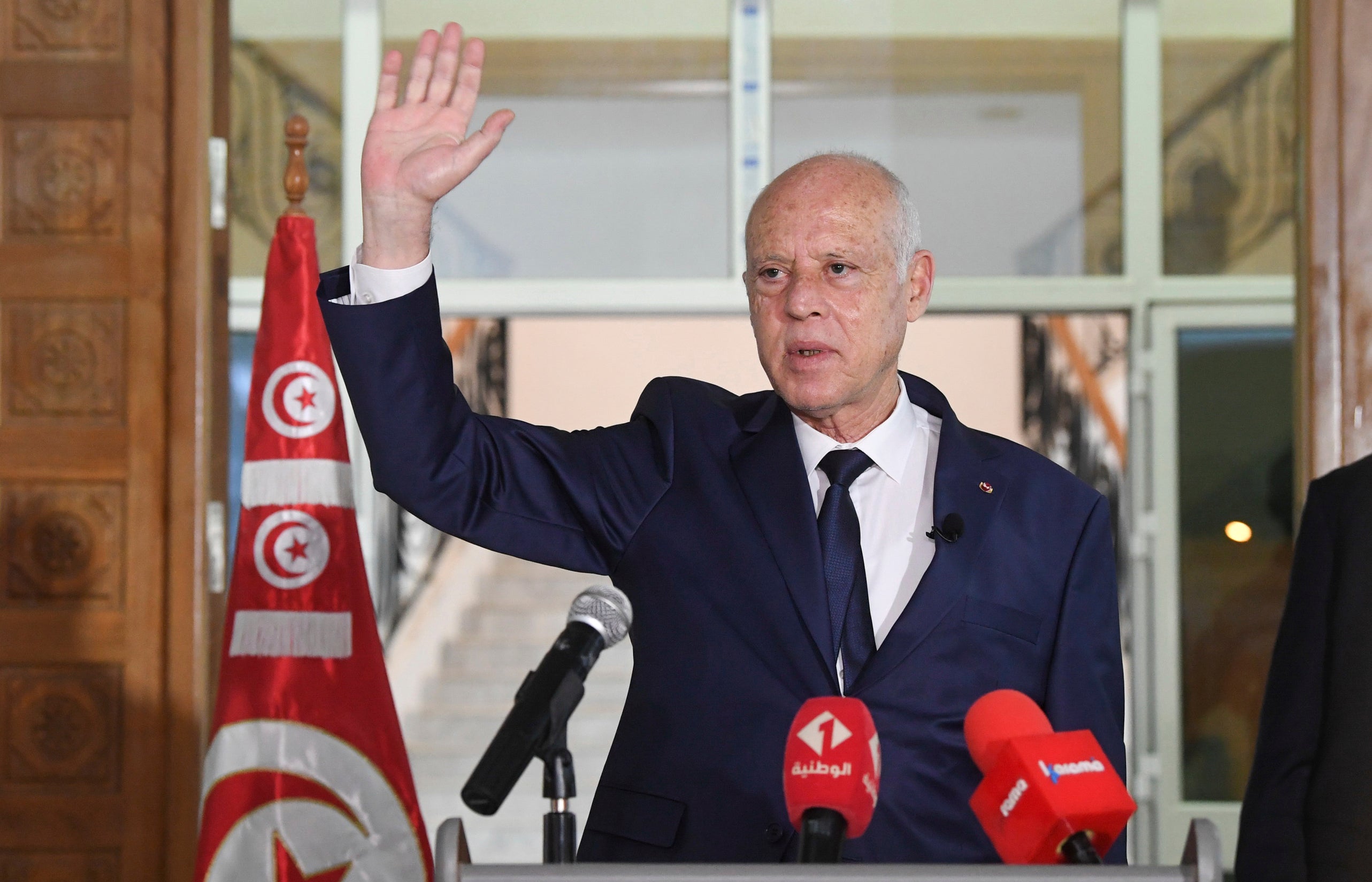Tunisia’s president expands power grab with announcement he will ‘rule by decree’
Four Tunisian parties responded to President Kais Saied’s statement saying he had lost his legitimacy and called for an end to what they called a ‘coup’

Your support helps us to tell the story
From reproductive rights to climate change to Big Tech, The Independent is on the ground when the story is developing. Whether it's investigating the financials of Elon Musk's pro-Trump PAC or producing our latest documentary, 'The A Word', which shines a light on the American women fighting for reproductive rights, we know how important it is to parse out the facts from the messaging.
At such a critical moment in US history, we need reporters on the ground. Your donation allows us to keep sending journalists to speak to both sides of the story.
The Independent is trusted by Americans across the entire political spectrum. And unlike many other quality news outlets, we choose not to lock Americans out of our reporting and analysis with paywalls. We believe quality journalism should be available to everyone, paid for by those who can afford it.
Your support makes all the difference.Tunisia’s president has expanded what critics have described as an audacious power grab that is damaging the country’s democratic endeavours. It is the latest in a series of moves in recent months that some worry could unravel gains won in the country’s 2011 revolution.
In a list of “exceptional measures” published in Tunisia’s Official Journal on Wednesday, President Kais Saied widened his powers, extended his suspension of the country’s elected parliament and, in an ominous sign of a potentially imminent crackdown, lifted the immunity of speaker Rached Ghannouchi, leader of the moderate Islamist opposition, and other members of parliament.
The measures grant Mr Saied the authority to rule by decree in what critics say amounts to a suspension of the country’s constitution. “Kais Saied is the one, the only one... in charge,’ said a headline in Tunisia’s Business News.
Following his announcement, four Tunisian parties said on Thursday that Mr Saied has lost his legitimacy and called for an end to what they called a “coup”.
Tunisia’s 2011 revolution was the first in a wave of Arab uprisings against authoritarian rule that swept across the Middle East and North Africa. A decade later, it is the only one considered a relative success. But persistent economic malaise has threatened to unravel any democratic gains.
Mr Saied, a retired constitutional scholar, was elected president in 2019 as a political outsider independent of the country’s political parties. He suspended Tunisia’s parliament on 25 July after persistent political deadlock and ongoing anti-government protests.
The Tunisian leader claims he will restore democratic norms once the country gets through its current political impasse. But ominous signs have already emerged. A military court has ordered the arrests of two lawmakers from the Islamist Karama party, in part for insulting a military judge.
Mr Saied’s government has also arrested another lawmaker, Lotfi Ali, on corruption charges as part of what appears to be a concerted effort to tie elected officials opposed to Mr Saied to various types of malfeasance.
In a speech on Monday, Mr Saied vigorously defended his moves as a “correctional revolution” to safeguard the gains of the 2011 uprising. “The parliament to which they want to go back became a battleground – an arena for insults, foul language and violence,” he said. “It had been transformed into a market where votes were bought and sold.”
Earlier this month the United Kingdom and United States joined in a statement issued by other developed nations calling on Tunisia to quickly return to “constitutional order, in which an elected parliament plays a significant role”.
Though constitutional scholars and democracy advocates have grown increasingly alarmed over Mr Saied’s moves, they are popular among some Tunisians, especially coastal elites worried about the power of Islamists. Pan-Arab television stations funded by wealthy Arabian Peninsula monarchies have for months cast the country’s elected institutions in a negative light and heightened fears of an Islamist takeover.
None of Mr Saeid’s dramatic measures appear to address Tunisia’s core problems of youth unemployment, lack of foreign investment and staggering public debt.
Join our commenting forum
Join thought-provoking conversations, follow other Independent readers and see their replies
Comments